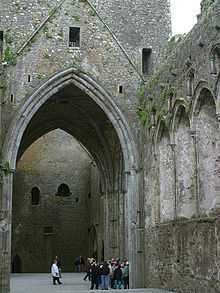1270
| Millennium: | 2nd millennium |
|---|---|
| Centuries: | 12th century – 13th century – 14th century |
| Decades: | 1240s 1250s 1260s – 1270s – 1280s 1290s 1300s |
| Years: | 1267 1268 1269 – 1270 – 1271 1272 1273 |
| 1270 by topic | |
| Politics | |
| State leaders – Sovereign states | |
| Birth and death categories | |
| Births – Deaths | |
| Establishments and disestablishments categories | |
| Establishments – Disestablishments | |
| Art and literature | |
| 1270 in poetry | |
| Gregorian calendar | 1270 MCCLXX |
| Ab urbe condita | 2023 |
| Armenian calendar | 719 ԹՎ ՉԺԹ |
| Assyrian calendar | 6020 |
| Bengali calendar | 677 |
| Berber calendar | 2220 |
| English Regnal year | 54 Hen. 3 – 55 Hen. 3 |
| Buddhist calendar | 1814 |
| Burmese calendar | 632 |
| Byzantine calendar | 6778–6779 |
| Chinese calendar | 己巳年 (Earth Snake) 3966 or 3906 — to — 庚午年 (Metal Horse) 3967 or 3907 |
| Coptic calendar | 986–987 |
| Discordian calendar | 2436 |
| Ethiopian calendar | 1262–1263 |
| Hebrew calendar | 5030–5031 |
| Hindu calendars | |
| - Vikram Samvat | 1326–1327 |
| - Shaka Samvat | 1192–1193 |
| - Kali Yuga | 4371–4372 |
| Holocene calendar | 11270 |
| Igbo calendar | 270–271 |
| Iranian calendar | 648–649 |
| Islamic calendar | 668–669 |
| Japanese calendar | Bun'ei 7 (文永7年) |
| Julian calendar | 1270 MCCLXX |
| Korean calendar | 3603 |
| Minguo calendar | 642 before ROC 民前642年 |
| Thai solar calendar | 1812–1813 |
| Wikimedia Commons has media related to 1270. |

The cathedral atop the Rock of Cashel in Ireland was completed in 1270.
Year 1270 (MCCLXX) was a common year starting on Wednesday (link will display the full calendar) of the Julian calendar.
Events
Africa
The Eighth Crusade
- Before August – King Louis IX of France launches the Eighth Crusade in an attempt to recapture the crusader states from the Mamluk sultan Baibars; the opening engagement is a siege of Tunis.
- August 25 – King Louis IX of France dies while besieging the city of Tunis, possibly due to poor quality drinking water.
- October 30 – The siege of Tunis and the Eighth Crusade end by an agreement between Charles I of Sicily (Louis IX's brother) and the sultan of Tunis.
Other events
- August 10 (10 Nehasé 1262) – Yekuno Amlak overthrows the Ethiopian Zagwe dynasty, claims the imperial throne and establishes the Solomonic dynasty which will last until 1974.
Asia
- In Korea, the Sambyeolcho Rebellion begins against the Goryeo Dynasty, a puppet government of the Mongol Empire.
- The ancient city of Ashkelon is captured from the crusader states and utterly destroyed by the Mamluk sultan Baibars, who goes so far as to fill in its important harbor, leaving the site desolate and the city never to be rebuilt.
- The city of Tabriz, in present-day Iran, is made capital of the Mongol Ilkhanate Empire (approximate date).
- The independent state of Kutch is founded in present-day India.
- A census of the Chinese city of Hangzhou establishes that some 186,330 families reside within it, not including visitors and soldiers. (Historian Jacques Gernet argues that this means a population of over 1 million inhabitants, making Hangzhou the most populous city in the world.)
Europe
- February 16 – Livonian Crusade: The Grand Duchy of Lithuania defeats the Livonian Order in the Battle of Karuse decisively on the frozen surface of the Baltic Sea.
- September 1 – King Stephen V of Hungary writes his walk to the antiquum castellum near Miholjanec, where the Sword of Attila was recently discovered.
- December – Crucial aspects of the philosophy of Averroism (itself based on Aristotle's works) are banned by the Roman Catholic church in a condemnation enacted by papal authority at the University of Paris.
- The Summa Theologica, a work by Thomas Aquinas that is considered within the Roman Catholic Church to be the paramount expression of its theology, is completed (year uncertain).
- Witelo translates Alhazen's 200-year-old treatise on optics, Kitab al-Manazir, from Arabic into Latin, bringing the work to European academic circles for the first time.
- The Sanskrit fables known as the Panchatantra, dating from as early as 200 BCE, are translated into Latin from a Hebrew version by John of Capua.
- Construction of the Old New Synagogue in Prague is completed.
- The cathedral on the Rock of Cashel in Ireland is completed.
- The Chronicle of Melrose is ended.
Births
- March 12 – Charles of Valois, son of Philip III of France (d. 1325)
- October 29 – Namdev, Marathi saint and poet (d. 1350)
- Theodore Metochites, Byzantine statesman and author
- Michael of Cesena, Franciscan theologian (d. 1342)
- Cino da Pistoia, Italian poet (d. 1336)
- Ma Zhiyuan, Chinese poet
Deaths
- February 23 – Saint Isabel of France, daughter of Louis VIII of France (b. 1225)
- March 17 – Philip of Montfort, Lord of Tyre
- May 3 – Béla IV of Hungary (b. 1206)
- July 14 – Boniface of Savoy, Archbishop of Canterbury
- August 25
- King Louis IX of France (b. 1214)
- Alphonso of Brienne (b. c. 1225)
- September 24 – Philip of Montfort, Lord of Castres
- December 4 – Theobald V of Champagne, King of Navarre (b. c. 1238)
- Mansa Wali Keita, second mansa of the Mali Empire
- Roger Bigod, 4th Earl of Norfolk (b. 1212)
- David VII Ulu, King of Georgia (b. 1215)
- Isaac ben Moses of Vienna, Jewish rabbi and scholar (b. 1200)